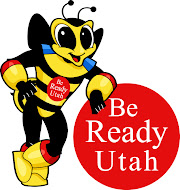Hearing Impaired - May need to make special arrangements to receive warnings.
Mobility Impaired - May need special assistance to get to a shelter.
Single working parent - May need help to plan for disasters and emergencies.
Non-English speaking persons - May need assistance planning for and responding to emergencies. Community and cultural groups may be able to help keep people informed.
People without vehicles - May need to make arrangements for transportation.
People with special dietary needs - Should take special precautions to have an adequate emergency food supply.
If you have special needs:
- Find out about special assistance that may be available in your community. Register with the office of emergency services or the local fire department for assistance so needed help can be provided.
- Create a network of neighbors, relatives, friends, and coworkers to aid you in an emergency. Discuss your needs and make sure everyone knows how to operate necessary equipment.
- Discuss your needs with your employer.
- If you are mobility impaired and live or work in a high-rise building, have an escape chair.
- Keep specialized items ready, including extra wheelchair batteries, oxygen, catheters, medication, food for service animals, and any other items you might need.
- Be sure to make provisions for medications that require refrigeration.
- Keep a list of the type and model numbers of the medical devices you require.
Above information found in FEMA'S Are You Ready? guidebook.










